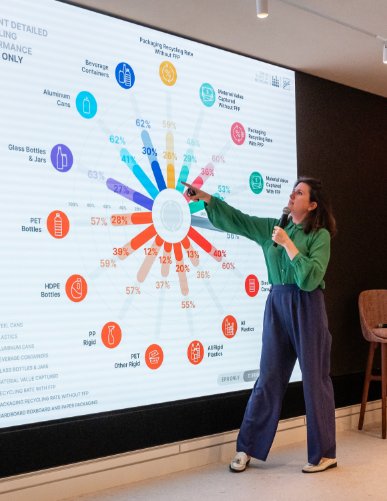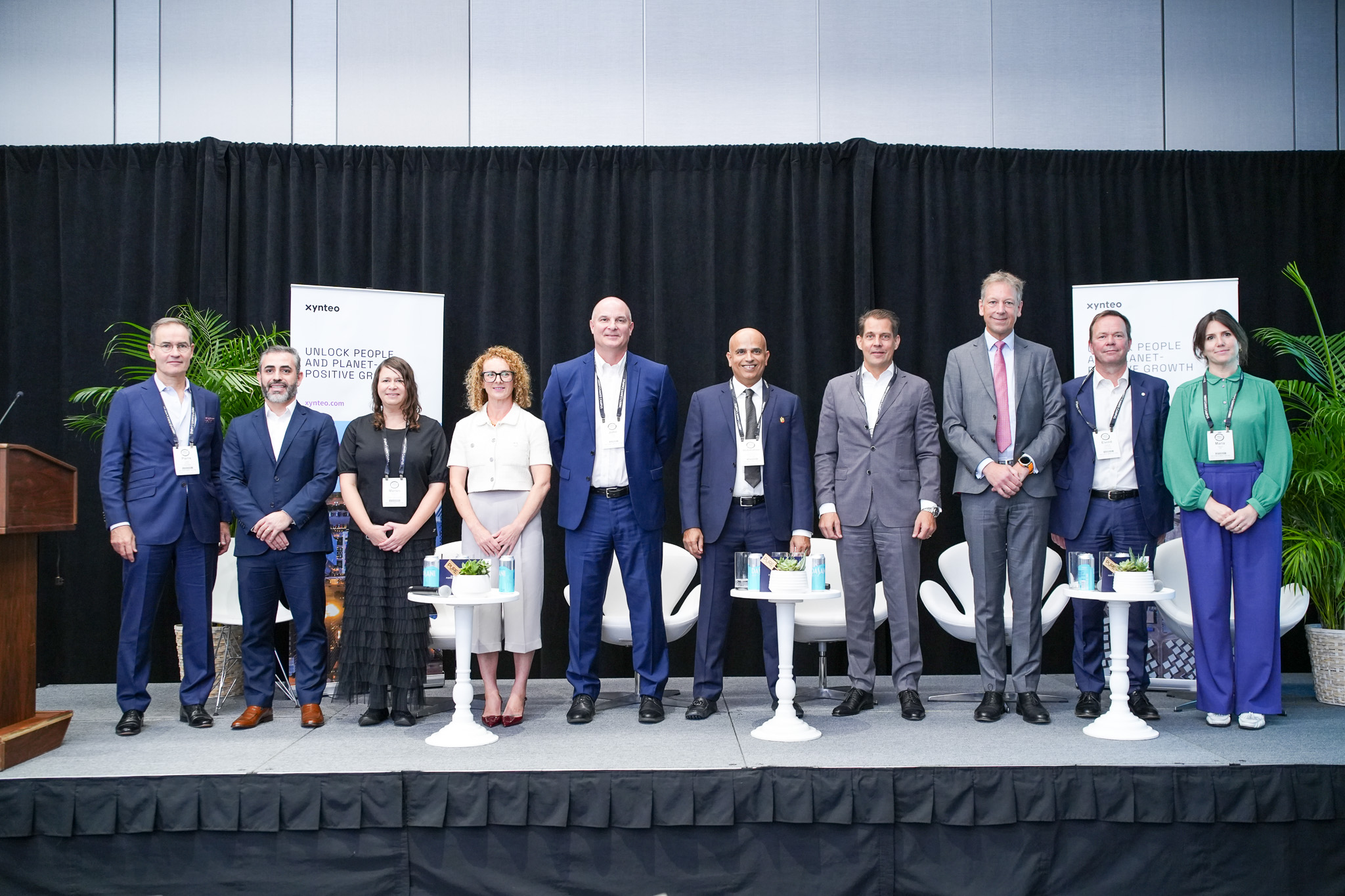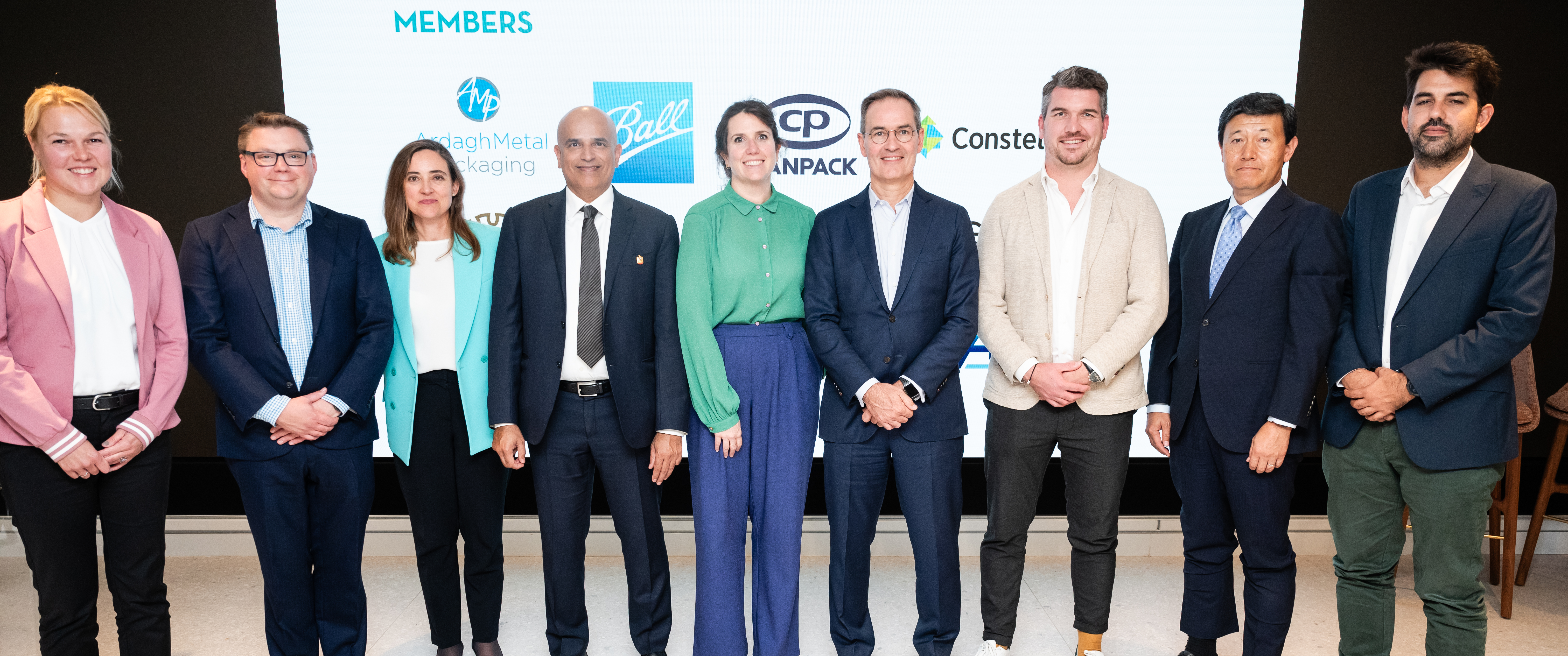Ball's Reflection on Climate Week NYC 2024
October 23, 2024
Climate Week NYC 2024 brought together leaders from the world of business, tech, politics, academia, and civil society to drive climate action, with over 900 events shaping critical conversations. For Ball, the event was an essential platform to showcase our thought leadership on aluminum circularity and decarbonization as shown in the Climate Transition Plan.
Circularity Takes Center Stage

The concept of circularity dominated discussions at the aluminum-specific sessions we participated in and it’s clear that the path to sustainable production isn’t just about reducing emissions—it’s about transforming how resources are used. Circularity goes beyond recycling, encompassing cost-efficiency, supply chain resilience, and resource security. For Ball this shift is fundamental, and it’s why we continue to advocate for increased recycling rates globally, as well as stronger collaboration across the entire value chain.

Maria Alegre, Global Stakeholder Relations Director at Ball Corporation, presented key findings from Ball and Eunomia’s 50 States of Recycling Report at the International Aluminum Institute (IAI) event "It's Time to Drive Aluminum Beverage Cans Towards Full Circularity”. The event built on the call to action for higher global recycling rates of aluminum beverage cans launched at COP28 by the Global Beverage Can Circularity Alliance, and explored viable pathways, bringing together industry leaders, policymakers, NGOs, and key stakeholders. The report shared by Maria provides a first-of-its-kind state-by-state comparable assessment of policy and recycling rates of common packaging materials in the United States.
The Future of Aluminum Decarbonization
Ball also attended the event “Aluminum Decarbonization. Scaling impact and driving ground-level change”, hosted by the IAI and Xynteo, where sectoral leaders Ball, Novelis, CBA, Crown, Rio Tinto, Hydro, EGA and Mercedes Benz showcased examples of success and discussed the future of aluminum. There, Maria recapped Ball’s progress against its climate targets, and the work happening on innovation in technology, procurement, and advocacy. Decarbonizing aluminum production was another key theme that resonated throughout the week. Calls for cross-sectoral, cross-industry collaboration, a carbon price, and more investment in grid and storage infrastructure were loud and clear. Despite the hurdles, the aluminum sector is well-positioned to be one of the first hard-to-abate industries to achieve net-zero emissions, thanks to the metal’s intrinsic recyclability and the innovations driving down carbon costs.

We also joined the discussion with the Circular Critical Material Accelerator Alliance, which brought together key stakeholders to form a value chain alliance to enable circularity as part of the solution to meet the growing critical material demand. The Alliance underscored the need for advanced sorting technologies to ensure aluminum is recycled rather than downcycled as downcycling wastes the valuable properties of aluminum and increases the carbon footprint of products that could otherwise have a longer lifecycle.
What’s Next?
Coming out of the conference, Ball made clear its position as a frontrunner in the push toward a circular, decarbonized aluminum sector. Our call to action is for higher global recycling rates, stronger partnerships across the value chain, and the means for the deployment of decarbonization technologies at scale and pace. With the right mix of innovation, collaboration, and policy support, the aluminum industry can—and will—achieve net-zero emissions.
As we look ahead to COP29 next month, Ball is committed to continuing these conversations and pushing for the changes needed to secure a sustainable future for the aluminum industry and the planet.
